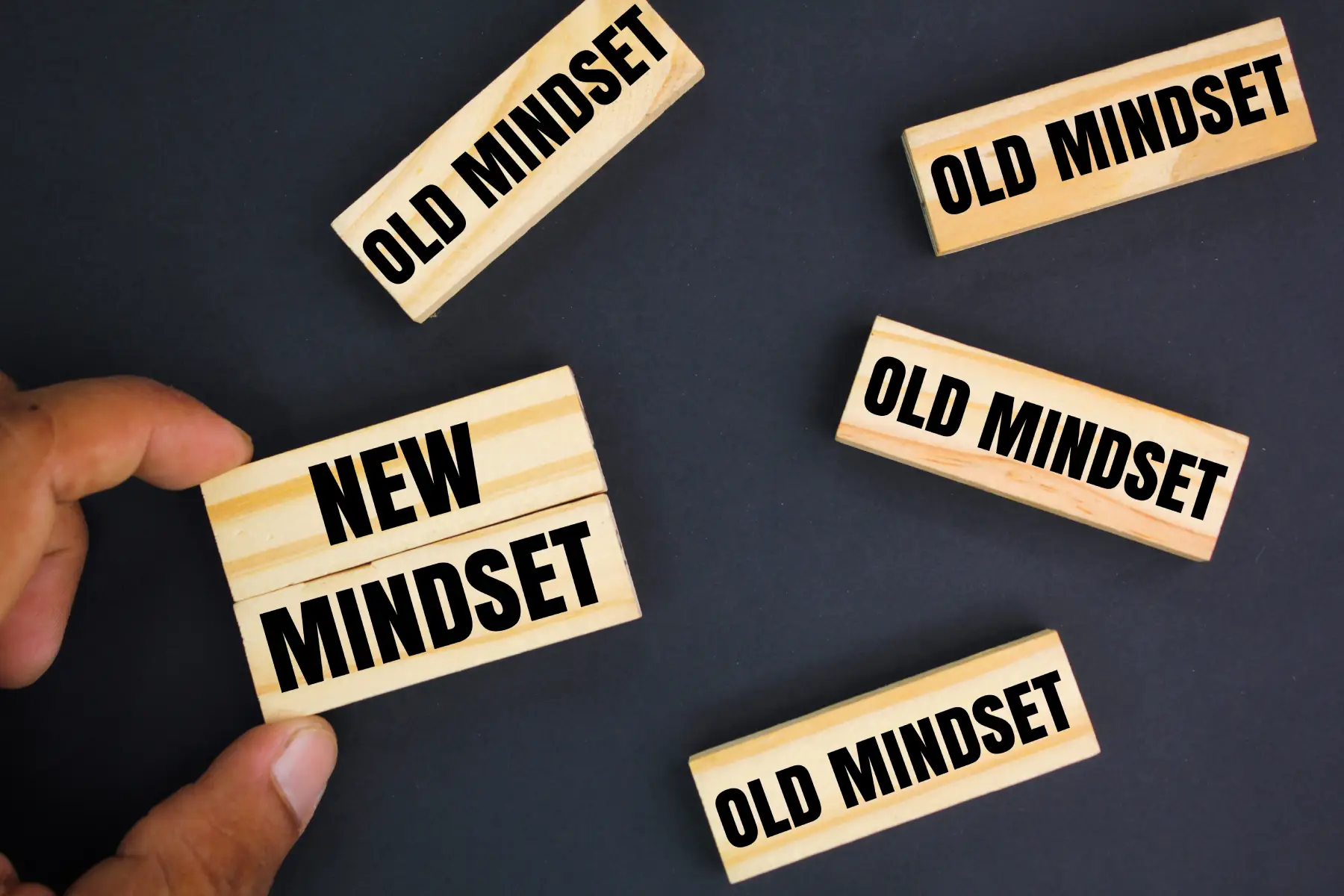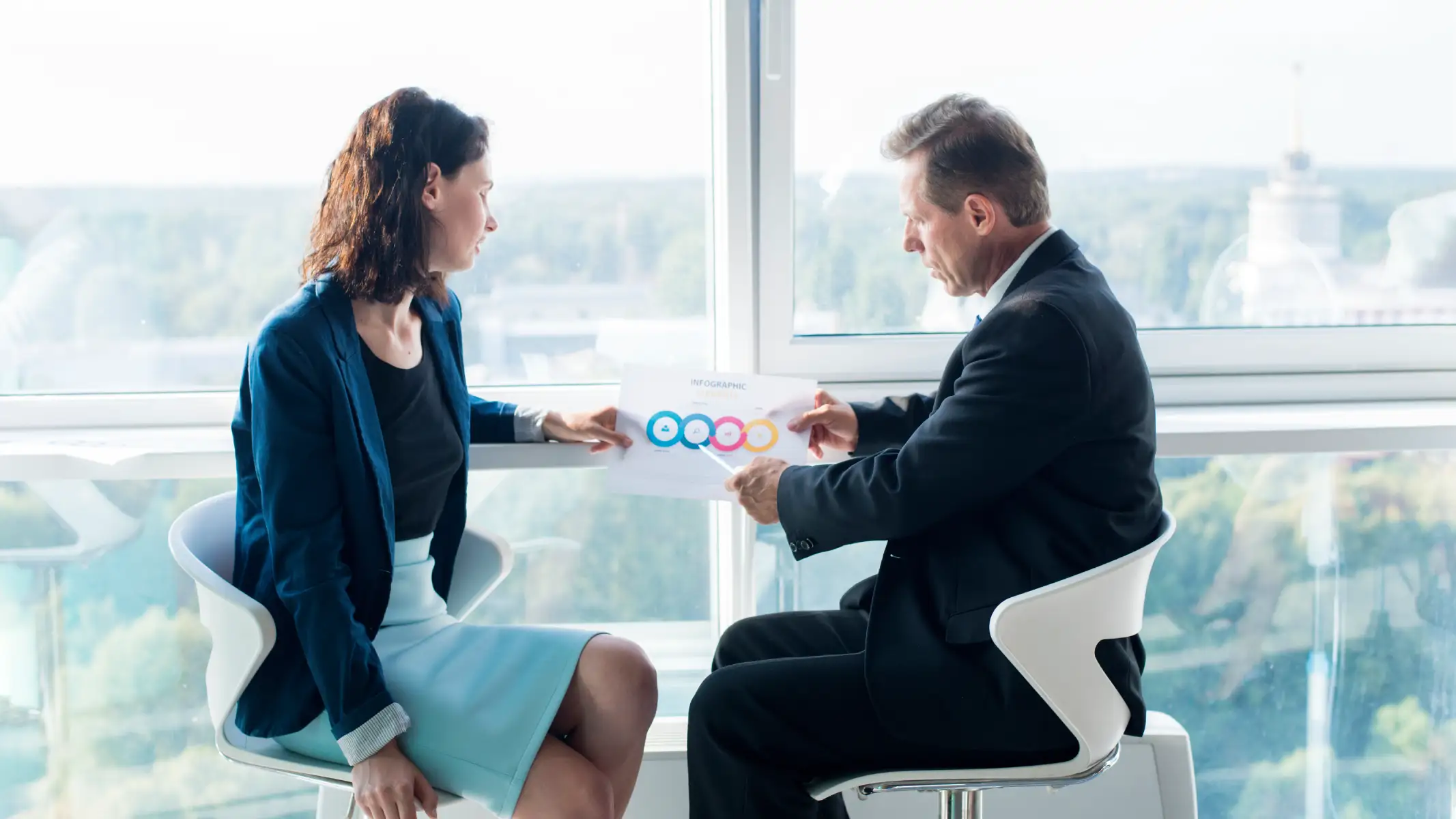In today’s fast-evolving business landscape, the ability to adapt to change, innovate, and thrive in uncertainty is a vital skill for organisations aiming for long-term success. At the heart of this agility lies a growth mindset—the belief that individuals, teams, and companies can develop their skills, abilities, and intelligence through effort, learning, and resilience. Fostering this mindset on an organisational scale enables businesses to foster creativity, overcome challenges, and drive transformation at every level.
This whitepaper explores what it means to build a growth mindset organisation, examines the psychological principles behind this approach, and provides actionable strategies for corporate culture transformation through the application of psychology in the workplace. For forward-thinking leaders, embedding a growth mindset is no longer optional but a key driver of resilience, innovation, and success in the face of future challenges.
What Is a Growth Mindset Organisation?
The term growth mindset was popularised by renowned psychologist Dr. Carol Dweck, whose research demonstrated that individuals who believe their abilities can grow through hard work and learning are more likely to succeed compared to those with fixed mindsets, who see their skills as static and unchangeable.
A growth mindset organisation applies this belief on a company-wide level by fostering an environment where employees and teams are encouraged to embrace challenges, learn from failures, and continuously develop their skills. At its core, this type of organisation integrates growth-oriented values into its strategy, culture, and daily operations, inspiring both personal and professional transformation.
Benefits of Building a Growth Mindset Organisation
Adopting a growth mindset across a company delivers tangible benefits:
- Fostering Innovation: Employees feel empowered to take risks and share creative ideas without fear of failure, driving greater innovation.
- Higher Engagement: When personal and professional growth is encouraged, employees feel more invested in organisational success.
- Resilience in Uncertainty: Teams within growth mindset cultures adapt better to changing environments and recover quickly from setbacks.
- Enhanced Collaboration: A growth mindset promotes open feedback and teamwork, where colleagues support one another’s development.
- Sustainable Performance: Companies that prioritise learning and adaptability are better positioned to sustain long-term growth.
Key Statistic: According to a Harvard Business Review study, employees in growth-oriented workplaces are 65% more likely to feel engaged and 47% more likely to see their company as innovative.
Growth Mindset vs. Fixed Mindset in Corporate Cultures
To successfully embed a growth mindset, organisations need to recognise the contrasting effects of growth and fixed mindsets at the cultural level:
| Growth Mindset | Fixed Mindset |
|---|---|
| Focuses on learning opportunities | Focuses on avoiding failure |
| Welcomes constructive feedback | Sees feedback as a personal criticism |
| Encourages experimentation | Plays it safe with predictable tasks |
| Rewards effort and progress | Rewards outcomes alone |
| Views failure as a step to growth | Views failure as a sign of incompetence |
An organisation rooted in a fixed mindset reflects rigid hierarchies, a culture of blame, and a reluctance to innovate—all of which hinder growth during rapid economic and industry changes.
The Psychology Behind Corporate Culture Transformation
For organisations to implement meaningful changes, building a corporate culture transformation grounded in psychological principles is paramount. Psychology provides a framework for understanding how people think, behave, and change in group and workplace dynamics.
The Psychology of Growth Mindset in the Workplace
Dr. Dweck’s growth mindset research demonstrates that individuals’ beliefs about their abilities influence their behaviours, habits, and outcomes. When applied to the workplace, this psychology highlights three key dynamics:
- Effort Reinforces Growth: Employees who understand that abilities and intelligence can be developed are motivated to invest greater effort into their work.
- Neuroplasticity in Learning: The brain’s ability to change throughout life, driven by learning and adaptable thinking, underpins a growth mindset culture. Employees exposed to consistent challenges develop stronger, more versatile skills over time.
- Belief Systems Drive Culture: The social dynamics of a workplace can reinforce either a growth or fixed mindset. This highlights the importance of leadership-supported initiatives to shift cultural norms.
Conclusion: Psychology-based interventions are key to shifting deep-seated mindsets and fostering environments that encourage growth-oriented behaviours.
Strategies for Building a Growth Mindset Organisation
How can leaders implement transformational initiatives that embed a growth mindset into their culture? Below are practical strategies driven by psychological research and real-world examples.
1. Leadership as Growth Mindset Role Models
Workplace culture flows from the top down; leaders must exemplify growth-oriented behaviours to influence their teams.
Priorities for Growth Mindset Leadership:
- Embrace Vulnerability: Leaders who admit mistakes and share their learning experiences normalise growth through failure.
- Promote Continuous Learning: Support leadership training that highlights the evolving competencies required in dynamic environments.
- Set Growth-Oriented Goals: Encourage team members to stretch their abilities by setting challenging objectives focused on skill development, not perfection.
Example: Satya Nadella, CEO of Microsoft, transformed the company’s culture by emphasising a growth mindset at every level, transitioning from internal competition to collaboration-focused innovation.
2. Embed Psychological Safety
A growth mindset cannot thrive without psychological safety, which enables employees to take risks and express themselves without fear of negative consequences.
How to Build Psychological Safety:
- Encourage open dialogue where employees can share ideas freely.
- Establish team norms that prioritise mutual respect and constructive feedback.
- Address failures positively, framing them as opportunities for collective learning.
Impact: When employees feel safe, they are more willing to experiment and innovate, propelling the organisation’s overall growth trajectory.
3. Create Growth Opportunities for Employees
Providing professional development opportunities aligned with employees’ goals and interests signals an organisational commitment to their growth.
Effective Growth Strategies:
- Upskilling and Reskilling Programs: Tailor training initiatives to address emerging challenges and roles.
- Internal Mobility: Establish pathways for employees to explore different functions or departments.
- Mentorship Programs: Empower knowledge-sharing between senior and junior staff for mutual growth.
Example: Google’s Career Guru programme helps employees identify key skills to develop, linking them to internal mentors to promote growth and career advancement.
4. Shift to Effort-Based Recognition
To reinforce growth mindsets, focus rewards and recognition on employees’ effort, experimentation, and learning, not just outcomes.
Why This Works:
- Encourages persistence and creativity rather than playing it safe.
- Celebrates incremental improvement and skill-building.
How to Put It Into Practice:
- Introduce team awards that recognise innovative ideas irrespective of final success.
- Adopt quarterly development reviews celebrating progress on personal goals.
Result: A stronger sense of meaningful accomplishment and motivation across teams.
Measuring the Impact of a Growth Mindset Culture
Creating a growth mindset organisation involves ongoing refinement and tracking key indicators of success.
Metrics to Monitor:
- Employee Engagement: Increased engagement indicates employees feel motivated and supported in their development journey.
- Innovation Metrics: Track the number of new ideas submitted, projects initiated, or successful product launches.
- Employee Skills Development: Gauge participation in upskilling programs and evaluate improvements in core competencies.
- Retention Rates: Growth-oriented organisations typically retain employees longer due to higher satisfaction and career opportunities.
- Collaboration Metrics: Survey or observe how cross-team initiatives improve over time.
Case Studies: Organisations Successfully Embedding a Growth Mindset
1. Microsoft
Under the leadership of Satya Nadella, Microsoft transitioned from a fixed to a growth mindset by shifting its focus from individual performance to team-based collaboration. Employees were encouraged to prioritise learning and adapt quickly to customer needs, producing a cultural transformation that positioned Microsoft as a leader in innovation and profitability.
2. Adobe
Adobe replaced annual performance reviews with a continuous feedback framework. This empowered employees to regularly learn, correct their mistakes, and set clear development goals, resulting in increased engagement and creativity across the organisation.
3. Unilever
Unilever implemented growth mindset training tools and embedded continual learning into its values, enabling the company to upskill employees for emerging global challenges. This approach bolstered innovation and sustainability efforts at scale.
Challenges and Solutions in Growth Mindset Implementation
Implementing a growth mindset culture is not without its challenges. Here are some common hurdles and solutions:
- Challenge: Resistance to Change
Solution: Garner executive sponsorship to model change from the top down. - Challenge: Time Constraints
Solution: Integrate microlearning and short workshops to maximise learning time within busy schedules. - Challenge: Ingrained Fixed Mindset Norms
Solution: Replace traditional metrics that favour competition with collaborative scoring methods.
The Future of Growth Mindset Organisations
Looking ahead, organisations that embrace corporate culture transformation through psychology are best positioned to navigate change. Future-proofing strategies include integrating AI for workforce upskilling, promoting neurodiverse talent, and embedding mental health awareness into learning and development programs.
Richard Reid: A Leader in Organisational Transformation
Richard Reid is an expert in transforming corporate cultures into thriving, growth-oriented environments. Specialising in psychology-driven solutions, Richard helps organisations build strategies that inspire resilience, learning, and high-performance across teams.
Why Choose Richard Reid?
- Tailored Programmes: Solutions tailored to meet the unique challenges of your organisation.
- Expert Insight: Backed by leading psychological research for proven results.
- Sustainable Change: Strategies designed to create long-lasting cultural transformation.
Conclusion
Transforming into a growth mindset organisation is a fundamental step in achieving sustainable success in a dynamic world. By adopting psychology-based strategies, embedding learning as a core value, and supporting employees through resilient leadership, businesses can foster innovation, engagement, and high-impact performance at every level.
For organisations ready to embrace cultural transformation, Richard Reid provides expert guidance to drive real change. Contact Richard today to begin your journey toward an agile, adaptable, and purpose-driven future.








